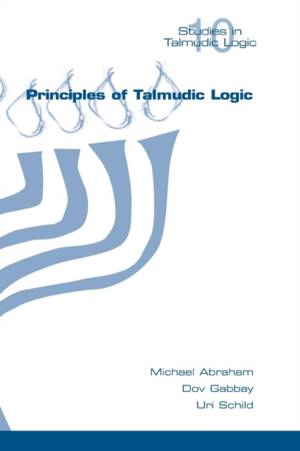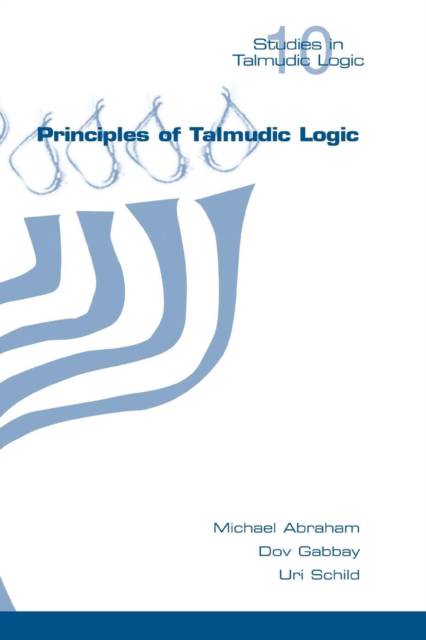
- Retrait gratuit dans votre magasin Club
- 7.000.000 titres dans notre catalogue
- Payer en toute sécurité
- Toujours un magasin près de chez vous
- Retrait gratuit dans votre magasin Club
- 7.000.0000 titres dans notre catalogue
- Payer en toute sécurité
- Toujours un magasin près de chez vous
Description
This book puts forward new logical systems suitable for modelling Talmudic and Biblical reasoning and argumentation. The Talmud is very logical. It is said that when God gave Moses the Ten Commandments, He also gave him additional laws and rules of logic to enable human beings to derive more laws. Together with colleagues the authors have already written 8 books on the logic of the Talmud and the project will involve 15-20 volumes. The authors have discovered principles which can be exported to current research in scientific communities, as well as human common sense reasoning and laws as tackled by religious thinking. Topics in this book include: 1 Non-deductive Inference in the Talmud: The book includes a new topological matrix method for analogical reasoning, completely new to existing AI methods which rely on metric distances. 2 The Textual Inference Rules Klal uPrat. How the Bible Defines Sets: Traditional set theoretic methods for defining sets are either by enumeration of its elements or by a predicate formula. The biblical way is a common sense combination of the two, approximating the set from above and from below by predicates, supplemented by a small number of typical members of the set. 3 Talmudic Deontic Logic: The Talmud has its own Deontic Logic, free of the traditional paradoxes. 4 Temporal Logic in the Talmud: The Talmud allows for special conditionals with antecedents depending on the future and consequents valid in the present. This new type of logic allows for backwards causality and connects with aspects of Quantum Logic. 5 Resolution of Conflicts and Normative Loops in the Talmud: The book deals with Talmudic loop checking methods that can be widely applied to handling loops in AI and logic. 6 Delegation and Representation in Talmudic Logic: Talmudic systems of delegation are innovative and apply to modern day to day computer delegation and access control. This book is of great interest to researchers in AI and Law, in Argumentation theory, and in Pure and Applied logical systems, as well as students of Talmudic reasoning and debate.
Spécifications
Parties prenantes
- Auteur(s) :
- Editeur:
Contenu
- Nombre de pages :
- 304
- Langue:
- Anglais
- Collection :
Caractéristiques
- EAN:
- 9781848900936
- Date de parution :
- 07-02-13
- Format:
- Livre broché
- Format numérique:
- Trade paperback (VS)
- Dimensions :
- 156 mm x 234 mm
- Poids :
- 426 g

Les avis
Nous publions uniquement les avis qui respectent les conditions requises. Consultez nos conditions pour les avis.






